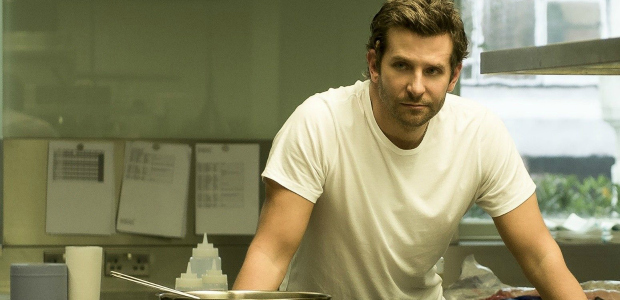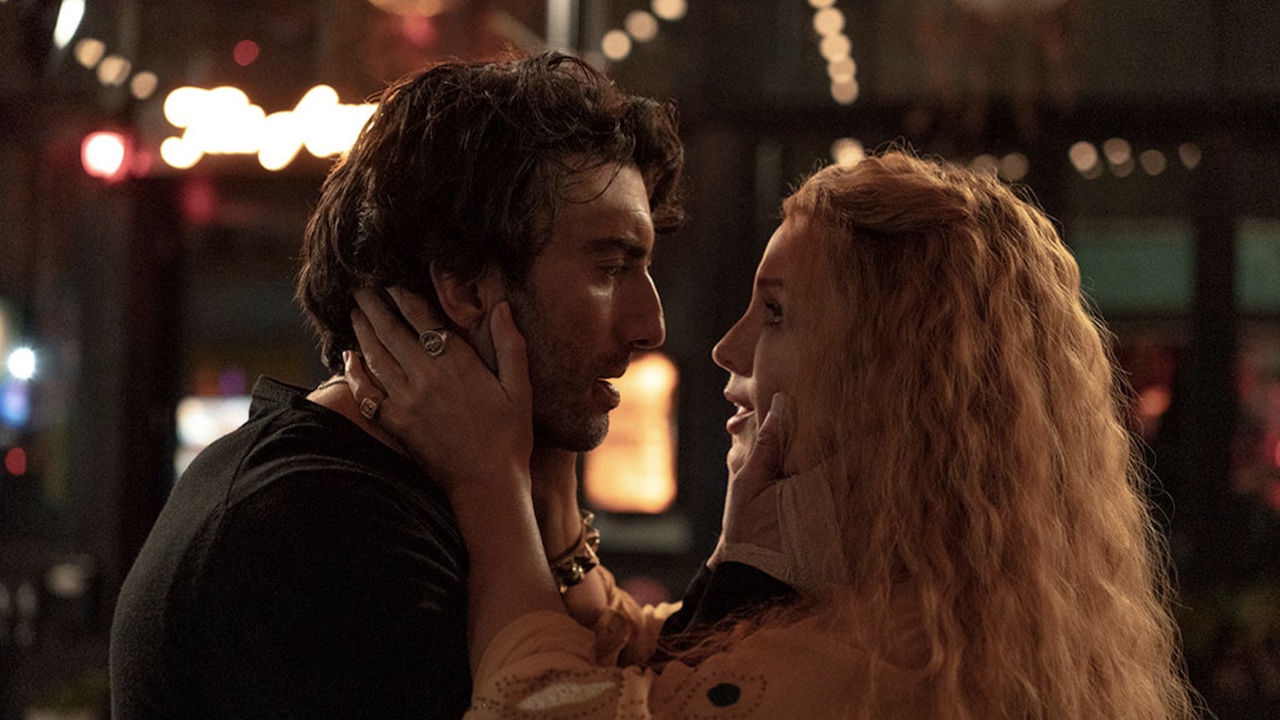Somewhere inside of Burnt, maybe not even all that far below the surface, is a sharp, cutting, very good film. A movie where the protagonist – a cocky, disgraced, once-super chef Adam Jones (Bradley Cooper) who states that his goal is to make food so good that people have to stop eating -- certainly has similarly lofty goals. While there are glimpses of what may have been greatness, the film on screen is jumbled, confused, and never fully cooked.
Right out of the gate, in unnecessary voiceover that is never heard from again, Burnt explains how the once great Jones fell from grace, washing out in Paris thanks to rampant drug use and a hard partying lifestyle. He then surfaces in New Orleans, shucking 1 million oysters as a self-imposed penance for his sins. This is all explained again, and much less ham-fistedly, through subsequent scenes, dialogue and interaction with other characters. So, immediately, the film starts repeating itself.
When he moves to London to set up a restaurant and score an elusive three-star Michelin rating, there’s an assembling-the-crew vibe, as he handpicks the staff of his new joint. There’s Tony (Daniel Bruhl), a world-class maître-d with ties to Adam’s past; former protégé, Michel (Omar Sy), who he screwed over; a new protégé, David (Sam Keely), who worships him; and Helene (Sienna Miller), a burgeoning chef who “doesn’t know how good she is.” It’s a dream team, and while this part of the film is entertaining and even resembles a heist movie, it’s not long before Steven Knight’s (Eastern Promises) script perilously balances a number of plates, and director John Wells (August: Osage County) sends many tumbling to the floor. Or worse, ignores them completely and let’s them just sit on the counter.
A number of potentially interesting threads are introduced then forgotten, underdeveloped, or left alone until it’s convenient for them to show up again. Burnt touches on ideas of OCD and addiction, but never in any real, meaningful way, including when Adam sees Dr. Rosshilde (Emma Thompson) for a weekly drug test — she’s also a therapist, but Adam don’t do therapy. There’s a one-sided romance angle that rears up in an attempt to make one character even remotely interesting and add texture to the narrative, only to be tied off all too quickly. Helene’s story even touches on the struggles of a single mother trying to make it in an industry that demands every waking second, but again, this aside is dispensed with as unceremoniously as other, less interesting, concerns take precedence.
With all of these various balls in the air, everything is rushed and hurried and glossed over. Uma Thurman shows up for two early scenes as a food critic who plays a pivotal role in Adam’s plan then evaporates. Alicia Vikander also gets two scenes as an ex from Adam’s troubled past, though there is little substance to her role other than making coy faces. Early on, Adam even hires an old cohort straight out prison, and though he’s set up as keg of dynamite with a sharp temper, all he does after that is take up space in the kitchen and is forgotten.
Adam is engaging and compelling to watch for a while — no one plays the charming douchebag with as much aplomb as Bradley Cooper — but that only goes so far. For as messy as his life is supposed to be — he’s burned every bridge he’s ever crossed and gets regular visits from drug dealers he still owes money to — everything is neat and tidy. Too neat and tidy. It’s the messy parts that might make him interesting for a full movie, but every time there’s a smudge or a scuff, it gets wiped away.
There are potentially fascinating avenues Burnt could explore, but every time the movie starts to move down one of these roads, it turns back Adam being a cocky dick. You get it, he’s a tortured genius — each time he encounters someone from his past, all they can say is how great and brilliant he is — but it’s what the movie does with that, or in this case, what it doesn’t do, that defines it. Any time Adam is on the verge of a monumental moment of self-discovery about trying to outrun his past, there’s another kitchen montage designed to make the audience hungry — there are so many montages, seriously, the movie even ends on one — and the movie hands you some flat, bland platitude.
Your Daily Blend of Entertainment News
There are moments of intense energy, where you witness what drew so many talented people to this script and this movie, and where it is easy to see how good this movie could have been. When Adam berates his staff for a disastrous opening night, Cooper sizzles and illustrates, even with all his outward arrogance and bravado, how fragile and delicate he truly is. But this energy is never matched elsewhere in the film, nor is this uncertainty on display in more than a miniscule smattering of moments.
At its peak, Burnt sings as Adam conducts his kitchen like an orchestra. Wells clearly has a firm grasp on the meticulous nature of high-level cooking, presenting the ubiquitous food in mouth-watering visuals. But overall, there are too many fumbles, too many missteps, and the most interesting bits of the film are swept off the cutting board and into the trash.


